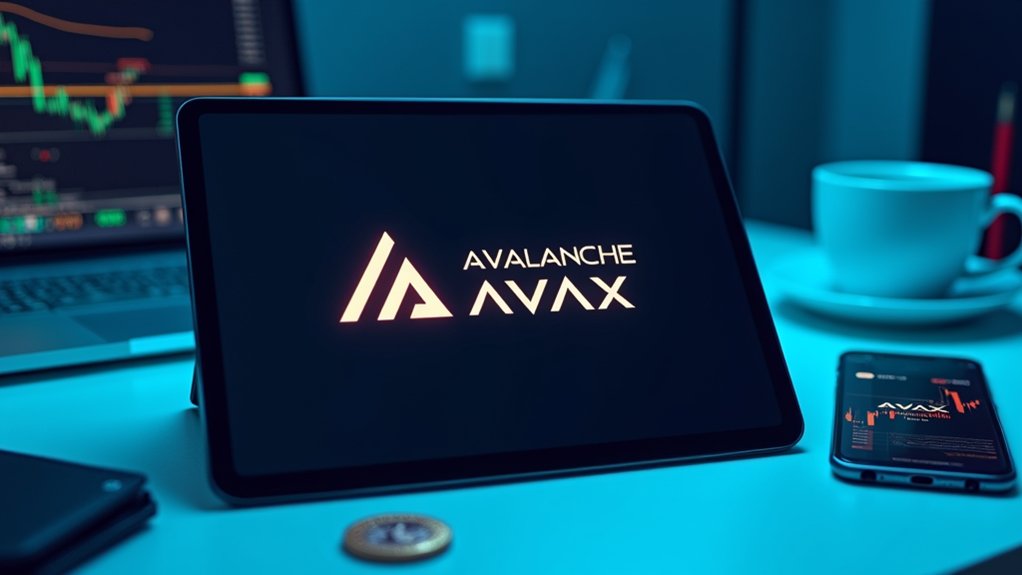Creating a cryptocurrency requires selecting one of four primary approaches: building a new blockchain, forking an existing platform, launching a token on established networks like Ethereum, or hiring specialized developers. Technical requirements vary considerably, with native blockchain development demanding proficiency in languages like Python, Solidity, or C++, while token creation offers simplified entry through standardized protocols like ERC-20. Blockchain-related services now enable development with reduced technical barriers, though success ultimately hinges on establishing a clear value proposition for market differentiation.

Creating a cryptocurrency coin, while technically complex, has become increasingly accessible through multiple development pathways that cater to various levels of technical expertise. Developers typically select from four primary approaches: building an entirely new blockchain, forking an existing blockchain, creating a token on an established platform, or hiring specialized blockchain developers to handle the technical implementation.
Cryptocurrency development now offers multiple pathways to accommodate all technical skill levels, from blockchain creation to outsourced implementation.
The distinction between coins and tokens remains essential, since coins operate on their dedicated blockchains, whereas tokens function within existing network infrastructures, most remarkably through Ethereum's widely-adopted ERC-20 standard.
The technical requirements for cryptocurrency creation vary greatly based on the selected approach. Programming proficiency in languages like Python, C++, Solidity, or Rust often proves necessary for direct blockchain development, with architectural decisions including node configuration and consensus mechanism selection representing key components of the development process.
Nodes, serving as network validators, maintain security through distributed verification processes, while automated development tools like WalletBuilders have emerged to simplify token creation for those with limited programming experience. Security audits conducted by specialized third parties subsequently validate code integrity, mitigating vulnerability exploitation risks.
Platform selection greatly influences development complexity, with Ethereum, Binance Smart Chain, Cardano, and Polkadot representing popular options that offer varying degrees of built-in functionality, scalability potential, and ecosystem support.
Open-source platforms particularly benefit developers by allowing code customization through accessible GitHub repositories, while simultaneously providing built-in security and credibility advantages compared to entirely novel blockchain architectures. The consensus mechanism selection further defines the cryptocurrency's operational characteristics, with Proof of Work and Proof of Stake representing dominant validation approaches that differ greatly in their energy consumption requirements and validation methodologies.
For those seeking to avoid direct coding complexities, Blockchain-as-a-Service (BaaS) providers, including Amazon Web Services and Microsoft Azure, offer development environments that abstract many technical challenges through intuitive interfaces and pre-configured components, enabling cryptocurrency creation with reduced technical barriers while maintaining fundamental blockchain security and functionality. Smart contracts play a crucial role in defining the behavior and rules of the cryptocurrency through automated digital agreements that execute without intermediaries. Any new cryptocurrency project should define a clear value proposition that distinguishes it from existing options in the increasingly competitive marketplace. Risk management is essential when creating a cryptocurrency, as investors should carefully consider market volatility before committing significant resources to any new crypto project.
Frequently Asked Questions
How Much Does It Cost to Create a Cryptocurrency?
Creating a cryptocurrency involves variable costs based on implementation approach and desired features.
Custom blockchain development typically ranges from $30,000 to $150,000+, whereas utilizing existing blockchain platforms costs considerably less, approximately $2,000-$14,000.
Additional expenses include security audits ($5,000-$30,000), marketing ($10,000-$50,000), legal compliance ($650-$50,000), and ongoing maintenance ($1,000-$10,000 annually).
Cost optimization strategies include leveraging existing platforms, which can reduce expenses by up to 80% compared to custom solutions.
Do I Need Coding Experience to Make a Crypto Coin?
While cryptocurrency creation does not necessarily require coding experience, the level of technical involvement depends on one's objectives.
Template-driven platforms and automated tools enable non-programmers to launch basic tokens, whereas custom blockchain development demands significant programming expertise.
Many entrepreneurs opt for hiring specialized development teams or utilizing Blockchain-as-a-Service companies, which balances costs against customization requirements and allows for market entry without extensive technical knowledge, though at the expense of complete architectural control.
Is Creating a Cryptocurrency Legally Regulated?
Cryptocurrency creation is extensively regulated under a complex multi-jurisdictional framework.
Federal agencies, including the SEC, CFTC, IRS, and FinCEN, impose varying requirements based on token classification, while state-level regulations create a fragmented compliance landscape.
New cryptocurrencies must navigate securities laws via the Howey Test, implement AML procedures, adhere to tax reporting obligations, and consider international regulatory disparities.
Non-compliance typically results in substantial penalties, enforcement actions, and potential project termination.
How Long Does It Take to Launch a New Coin?
Launching a new cryptocurrency varies greatly in timeline, depending on technical complexity and scope.
Simple token creation on established blockchains like Ethereum can be accomplished within minutes to hours, while custom blockchain development typically requires six months or more.
Regulatory compliance adds considerable time, potentially extending launches by weeks or months.
Standard projects with moderate functionality, proper documentation, and basic marketing infrastructure generally require three to six months from conceptualization to public deployment.
What Makes a Crypto Coin Gain Value After Creation?
Crypto coins gain value through a convergence of market forces, including utility implementation, institutional adoption, and scarcity mechanisms.
Positive market sentiment, measured via metrics like the Fear & Greed Index, drives investment inflows, while robust technical infrastructure guarantees security and scalability.
Economic factors, particularly well-designed tokenomics with controlled distribution schedules, prevent inflationary pressures.
Additionally, regulatory clarity, competitive differentiation from rival projects, and demonstrable real-world applications substantially enhance a token's long-term value proposition.









